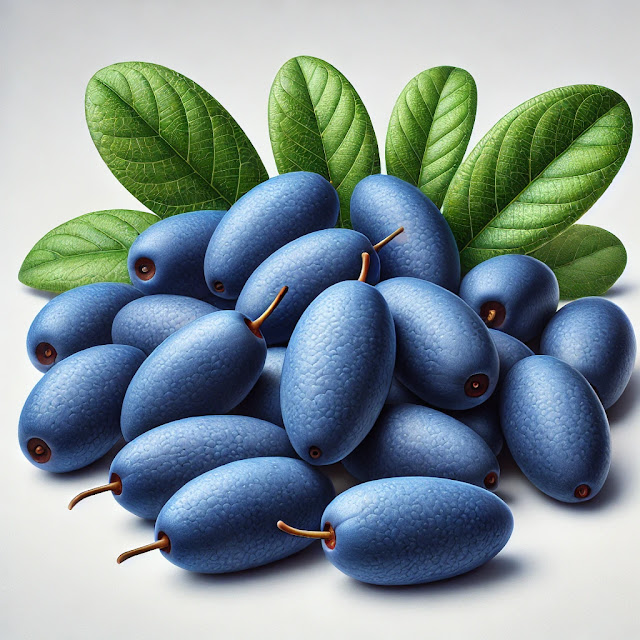Lychee: The Exotic Fruit That’s Bursting with Flavor and Health Benefits
Overview:
Lychee, with its rough, reddish-brown shell and sweet, juicy flesh, is a tropical fruit enjoyed for its refreshing flavor and exotic appeal. This small, flavorful fruit is popular in many parts of Asia but has gained global popularity due to its unique taste and rich nutrient content. Lychee is not only delicious but also provides a range of health benefits.
Calories and Key Nutrients (per 100g):
A 100g serving of lychee contains approximately 66 calories, making it a relatively low-calorie fruit. Lychee is high in vitamin C, providing over 100% of the recommended daily intake per 100g. It also contains potassium, copper, and small amounts of B vitamins, including B6 and niacin. When compared to fruits like mango or papaya, lychee offers similar amounts of vitamin C but with a lighter, less dense texture, making it a refreshing option.
Health Benefits:
Lychee is rich in antioxidants, particularly vitamin C, which helps boost the immune system and protects the body from oxidative stress. It also contains flavonoids, which support heart health by improving circulation and reducing inflammation. The potassium in lychee helps regulate blood pressure, making it beneficial for cardiovascular health. Additionally, lychee contains soluble fiber, which aids digestion and promotes healthy gut bacteria, supporting overall digestive health.
Proper Consumption Methods:
The best way to enjoy lychee is fresh. Simply peel off the rough outer skin, remove the seed, and enjoy the juicy flesh. Lychee can also be added to fruit salads, smoothies, or even desserts for a burst of sweetness. In addition to fresh consumption, lychee is often used in canned or dried form in various Asian dishes, sauces, or beverages.
Tasty Ways to Eat Lychee (Recipes):
For a simple yet delightful recipe, try making a lychee sorbet. Blend fresh lychees with lime juice and a bit of sugar, then freeze the mixture to create a refreshing, tropical dessert. Another creative way to enjoy lychee is to use it in a salad. Combine peeled lychees with avocado, cucumber, and a light vinaigrette for a unique and delicious starter.
Cautions When Eating Lychee:
While lychee is generally safe for most people, it should be consumed in moderation. Overeating lychee, especially on an empty stomach, has been linked to hypoglycemia in rare cases, particularly among children. Additionally, canned lychees often contain added sugars, so it’s best to opt for fresh or unsweetened varieties when possible.
Comparing Lychee to Other Fruits:
Compared to other tropical fruits like rambutan or longan, lychee is similar in taste and texture but has a more pronounced floral flavor. While rambutan has a slightly higher fiber content, lychee stands out for its higher vitamin C content. Both fruits are rich in antioxidants and beneficial for boosting the immune system, but lychee’s delicate, juicy texture makes it particularly appealing in refreshing dishes.
Who Should Eat Lychee and Who Should Avoid It:
Lychee is a great fruit for those looking to boost their vitamin C intake or support heart health due to its high antioxidant content. It’s also ideal for athletes who need to replenish electrolytes like potassium. However, individuals with blood sugar concerns should be cautious, as lychee contains natural sugars. People with allergies to similar fruits like longan should also be aware of potential allergic reactions.
Interesting Stories or Facts:
Did you know that lychee has been cultivated in China for over 2,000 years? It was once considered a delicacy in the imperial courts, and its arrival was eagerly awaited during the harvest season. Lychee trees can live for over 100 years and continue to produce fruit, making them a symbol of longevity and prosperity in many cultures.
Lychee Culture Around the World:
In China and Southeast Asia, lychee is often enjoyed fresh or used in desserts and beverages. In India, lychee is commonly turned into juice or added to refreshing summer drinks. Lychee martinis and cocktails have become popular in Western countries, where the fruit’s sweet, floral notes add a tropical twist to beverages.
Scientific Research on Lychee:
Recent studies have highlighted lychee’s potential to reduce inflammation and lower the risk of chronic diseases such as heart disease and diabetes. Lychee’s polyphenols have been shown to support healthy blood circulation and improve skin health by reducing oxidative damage. Additionally, some research has explored lychee’s potential role in weight management due to its low calorie and high fiber content.
Conclusion:
Lychee is a delightful fruit that offers both a delicious flavor and numerous health benefits. With its rich vitamin C content, antioxidants, and digestive support, lychee is a great addition to any diet. However, as with any food, moderation is key, especially for those with blood sugar concerns.
This information may not be entirely accurate, so if you have any medical conditions, please consult a doctor before consuming lychee.











Comments
Post a Comment